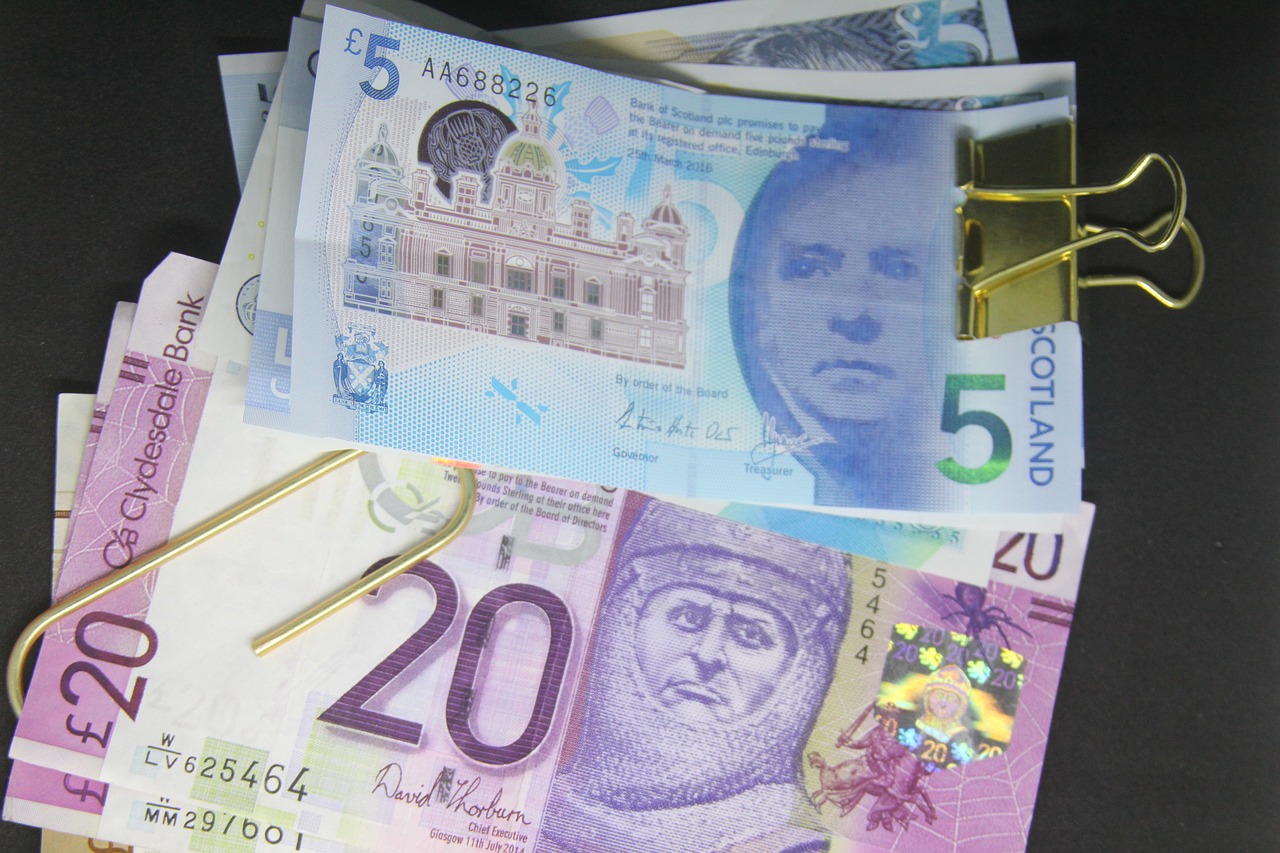Unlocking the Mystery: Everything You Need to Know about Sending Money Without a Bank Account
GPT_Global - 2024-05-18 12:30:06.0 475
Do I need to have a bank account in order to send money?
When it comes to remittance services, one of the most common questions people have is whether or not they need to have a bank account in order to send money. The short answer is no, you do not necessarily need a bank account to use remittance services. There are various options available for sending money without needing a bank account, such as using a money transfer service or an online payment platform.
The key factor to consider when using remittance services without a bank account is the amount of money being sent and the country where it will be received. For smaller amounts, you may be able to use cash-to-cash services, which involve physically bringing cash to a designated location for it to be transferred to the recipient. This option is ideal for countries with limited banking infrastructure.
Another alternative is through mobile money services, which allow users to send and receive money using their mobile phones. These services are becoming increasingly popular, especially in developing countries where access to traditional banking services may be limited.
In addition, some remittance providers offer the option to deposit funds directly into the recipient's mobile wallet, eliminating the need for a bank account altogether. With this method, the recipient can easily access and use the funds via their mobile phone.
However, if you are sending larger amounts of money or to countries with more developed banking systems, having a bank account may provide more convenience and potentially lower fees. You can easily deposit funds into your bank account and then initiate a transfer to the recipient's bank account using a remittance service.
Ultimately, whether or not you need a bank account for remittance services depends on your personal circumstances and the options available in the country you are sending money to. It is always best to research and compare different methods and providers to find the most cost-effective and convenient option for your specific needs.
In conclusion, having a bank account is not a requirement for sending money through remittance services, as there are various alternatives available. However, having a bank account may offer more options and convenience, especially for larger transfers or to countries with established banking systems.

Are there any alternative methods for sending money besides through a bank?
The traditional method of sending money through a bank has long been the go-to option for many people. However, with the rise of technology and globalization, there are now more alternative methods for sending money than ever before. These alternatives not only offer convenience and speed but also often come with lower fees and better exchange rates. Here are some alternative methods for sending money besides through a bank.
One popular alternative is through money transfer companies such as Western Union, MoneyGram, and Ria. These companies specialize in worldwide money transfers and have thousands of locations in various countries where recipients can pick up the funds in cash. Some also offer the option to send money directly to a recipient's bank account or mobile wallet.
Another option is using online platforms like PayPal, Venmo, or TransferWise. These platforms allow users to link their bank accounts or credit cards and send money electronically to other users with just a few clicks. They also have the added benefit of being able to transfer funds internationally without the need for a physical location.
Cryptocurrencies, such as Bitcoin, have also emerged as a viable option for sending money internationally. With low transaction fees and near-instant transactions, it has become a popular choice for many people. However, it is worth noting that not all countries have regulations in place for cryptocurrencies, so it is essential to research before using this method.
Finally, individuals can also opt to use prepaid debit cards to send money abroad. These cards can be loaded with a specific amount and then given to the recipient, who can use them to make purchases or withdraw cash at ATMs. This method does not require a bank account, making it a convenient option for those who do not have one.
In conclusion, while banks are still a reliable and secure option for sending money, it is worth considering these alternatives for faster, cheaper, and more convenient transactions. With so many options available, it is essential to research and compare fees and exchange rates to find the best method for your specific needs.
Can I send money to someone who doesn't have a bank account?
If you're looking to send money to someone who doesn't have a bank account, you may be wondering if it's even possible. The good news is that there are several options for sending money to individuals who don't have access to traditional banking services.
One option is to use a remittance business, also known as a money transfer service. These businesses specialize in transferring funds from one location to another, often across international borders. They usually have physical locations or partner with other businesses that can serve as pick up points for the recipient.
In order to use a remittance business, you will need to provide the recipient's name, contact information, and the amount you wish to send. The recipient will then be able to pick up the funds at the designated location after providing proper identification. This option is convenient for those who do not have bank accounts, as they can still receive the money in cash.
Another option is to use a mobile money transfer service. This method allows you to send money directly to the recipient's mobile phone. The recipient can then use their phone to withdraw the funds at a participating agent location or use it for purchases. This can be especially beneficial for those without bank accounts, as they can easily access the funds through their mobile device.
Some remittance businesses also offer the option of sending money directly to a prepaid debit card. This option works similar to a bank account, as the recipient can use the card for purchases and withdrawals at ATMs. However, no bank account is required to use this method. The recipient can simply use the prepaid card to access the funds sent by the sender.
It's important to note that each remittance business may have different fees and exchange rates, so it's important to compare and choose the option that is most cost-effective for you. Additionally, it's crucial to only use reputable remittance businesses to ensure the safety and security of your funds.
In conclusion, sending money to someone without a bank account is possible through various remittance options such as money transfer services, mobile money transfers, and prepaid debit cards. These options provide convenience and flexibility for both the sender and recipient, making it easier to send and receive funds even without access to traditional banking services.
Is it safe to send money online?
In today's digital age, sending money online has become a convenient and popular method for remittance. With just a few clicks, people can transfer funds to their loved ones in different parts of the world. But is it safe to send money online? In this article, we will discuss the safety measures taken by remittance businesses to ensure secure online transactions.
Firstly, most remittance businesses have implemented advanced encryption technology to protect the sensitive information of their customers, such as bank account details and personal information. This ensures that the data is not accessible to any unauthorized parties, providing a layer of security for online transactions.
Moreover, reputable remittance businesses have strict verification processes in place to verify the identity of their customers before allowing them to make transactions. This helps to prevent fraudulent activities and protects both the sender and receiver from potential scams.
Additionally, many remittance businesses also offer money-back guarantees in case of any technical errors or issues during the transfer process. This gives customers the assurance that their money is safe and that they will be reimbursed in case of any problems.
Furthermore, some remittance businesses partner with trusted financial institutions and use secure payment gateways to ensure the safe transfer of funds. This minimizes the risk of fraud and provides an added layer of protection for customers' money.
Lastly, it is important for customers to also take necessary precautions when sending money online. This includes using strong passwords, avoiding public or unsecured Wi-Fi networks, and regularly monitoring their transaction history for any unauthorized activity.
In conclusion, while there are risks involved with any online transaction, remittance businesses have taken several measures to ensure the safety and security of their customers' money. By choosing a reputable and trusted remittance service, and being cautious when making online transactions, customers can safely and conveniently send money to their loved ones around the world.
Are there any restrictions on sending money to certain countries?
Sending money to other countries is a common practice for individuals and businesses alike. It allows people to support their loved ones, invest in properties or businesses, and conduct international trade. However, there are certain restrictions in place when it comes to remittances to certain countries.
One of the main restrictions in sending money abroad is compliance with anti-money laundering (AML) and counter-terrorism financing (CTF) laws. These laws aim to prevent the transfer of funds for illegal activities such as terrorism, drug trafficking, or money laundering. As such, remittance service providers are required to verify the identity of the sender and receiver and monitor transactions for any suspicious activities.
Another factor that affects remittance to certain countries is political and economic conditions. In countries with unstable governments or high levels of corruption, it may be difficult to send money through official channels. This can lead to individuals resorting to informal channels, which can be risky and subject to high fees.
Sanctions imposed by the government also play a role in restricting remittances to certain countries. These sanctions can be in response to political or human rights issues, and they prohibit financial transactions with specific countries or individuals. As a result, it may be difficult or even illegal to send money to these sanctioned countries.
Lastly, some countries may have specific regulations in place for remittances, such as limiting the amount of money that can be sent or imposing taxes on incoming transfers. It's important to research and understand these regulations before sending money to avoid any issues or delays.
In conclusion, while sending money globally has become easier with advancements in technology and financial services, there are still restrictions in place for certain countries. Compliance with AML and CTF laws, political and economic conditions, government sanctions, and country-specific regulations can all impact the ability to send money to certain destinations. It's crucial to stay informed and follow proper procedures when sending money abroad to ensure a smooth and secure transaction.
About Panda Remit
Panda Remit is committed to providing global users with more convenient, safe, reliable, and affordable online cross-border remittance services。
International remittance services from more than 30 countries/regions around the world are now available: including Japan, Hong Kong, Europe, the United States, Australia, and other markets, and are recognized and trusted by millions of users around the world.
Visit Panda Remit Official Website or Download PandaRemit App, to learn more about remittance info.



